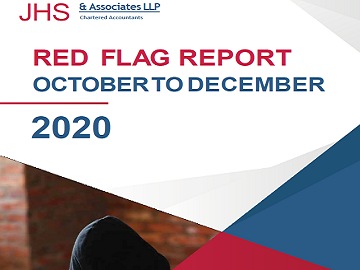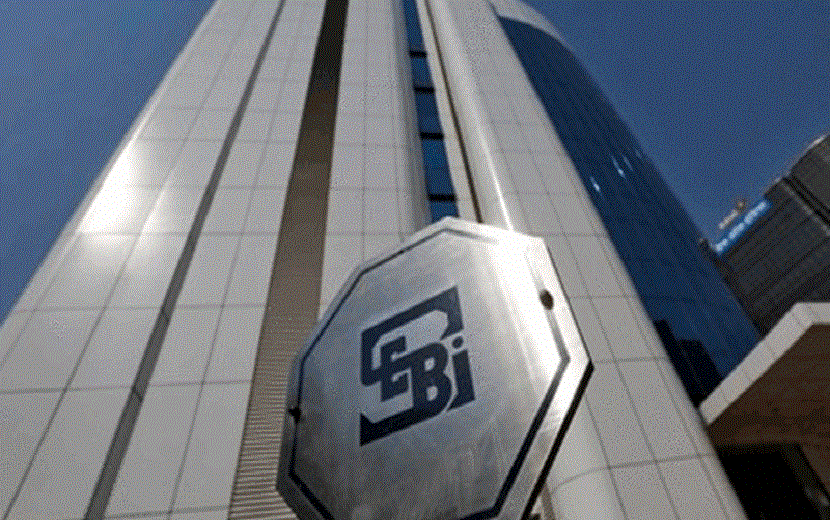Reference: Central Board of Direct Tax
Update:
CBDT proposes new Form 15E for making application to determine ‘sum chargeable to tax’ u/s 195
Section 195 of the Income-tax Act, 1961, provides that every payer (resident or non-resident) shall be responsible for deduction of tax at source under this provision from payment of any sum to a non-resident which is chargeable to tax. The tax shall be deducted under this provision only if income of non-resident is taxable in India.
If sum payable to a non-resident is taxable in India but the person responsible for making the payment believes that the entire sum shall not be taxable but only a portion thereof shall be taxable in India, he may make an application to the Assessing Officer (AO) to determine the appropriate proportion of such sum so chargeable, and upon such determination, tax shall be deducted only on that proportion of the sum which is so chargeable.
Currently, no form has been prescribed by the Dept. for filing of an application by the payer to obtain a certificate for deduction of tax at lower or nil rate. Thus, the payer has to write an application on plain paper and physically submit it to AO with an application to require him to issue an order under section 195(2).
Similarly, sub section (7) provides that the government may specify a class of persons or cases, where deductor shall make an application to the AO to determine the appropriate proportion of sum chargeable and upon such determination, tax shall be deducted only on that proportion of the sum which is so chargeable. However, no form has been prescribed in this behalf.
In order to streamline the process and to enable tax administration in monitoring such payments, the provisions of Section 195(2) has been amended by the Finance (No. 2) act, 2019, to prescribe the form and manner of application to the AO and also for the manner of determination of appropriate portion of sum chargeable to tax by the Assessing Officer.
Further, section 195(7) was also amended to empower the government to specify the class of person or cases as prescribed above.
Thus, the CBDT has proposed to inset new rule 29BA and Form 15E to operationalize the provisions of the section 195. Stakeholders are invited to send their comments on the proposed Form 15E to be introduced in the Rules. The comments/suggestions may be sent electronically (in word format) though email at ustp13@nic.in within 15 days of publication of this document on the Income Tax website (www.incometaxindia.gov.in).
Reference: Central Board of Indirect Taxes and Customs
Update:
CVD on Continuous Cast Copper Wire Rods
CBIC has imposed definitive countervailing duty on imports of Continuous Cast Copper Wire Rods originating in, or exported from Indonesia, Malaysia, Thailand and Vietnam at the rate prescribed in the notification.
Implication:
The said countervailing duty is levied for a period of five years (unless revoked, superseded or amended earlier) from the date of publication of this notification in the Official Gazette and shall be payable in Indian currency.
Reference: Insolvency and Bankruptcy Board of India
Update:
IBBI amends the Insolvency and Bankruptcy Board of India (Liquidation Process) Regulations, 2016:
The Insolvency and Bankruptcy Board of India (IBBI) notified the Insolvency and Bankruptcy Board of India (Liquidation Process) (Amendment) Regulations, 2020 on 6th January 2020.
The amendment clarifies that a person, who is not eligible under the Code to submit a resolution plan for insolvency resolution of the corporate debtor, shall not be a party in any manner to a compromise or arrangement of the corporate debtor under section 230 of the Companies Act, 2013.
It also clarifies that a secured creditor cannot sell or transfer an asset, which is subject to security interest, to any person, who is not eligible under the Code to submit a resolution plan for insolvency resolution of the corporate debtor.
The amendment provides that a secured creditor, who proceeds to realise its security interest, shall contribute its share of the insolvency resolution process cost, liquidation process cost and workmen’s dues, within 90 days of the liquidation commencement date. It shall also pay excess of realised value of the asset, which is subject to security interest, over the amount of its claims admitted, within 180 days of the liquidation commencement date. Where the secured creditor fails to pay such amounts to the Liquidator within 90 days or 180 days, as the case may be, the asset shall become part of Liquidation Estate.
The amendment provides that a Liquidator shall deposit the amount of unclaimed dividends, if any, and undistributed proceeds, if any, in a liquidation process along with any income earned thereon into the Corporate Liquidation Account before he submits an application for dissolution of the corporate debtor. It also provides a process for a stakeholder to seek withdrawal from the Corporate Liquidation Account.
Reference: Reserve Bank of India
Update:
Processing of e-mandate in Unified Payments Interface (UPI) for recurring transactions
RBI had issued circular on Processing of e-mandate on cards for recurring transactions dated 21st August 2019, whereby processing of e-mandate on cards / Prepaid Payment Instruments (PPIs) was permitted for recurring transactions (merchant payments), with Additional Factor of Authentication (AFA) during e-mandate registration, modification and revocation, as also for the first transaction, and simple / automatic subsequent successive transactions, subject to certain conditions.
RBI has extended the above instructions to cover UPI transactions as well.
Implication:
All the instructions / conditions outlined in the circular under reference would apply, mutatis mutandis, while processing e-mandate in UPI.
Update:
Inter-Bank transactions beyond onshore market hours:
On recommendation of the Task Force on Offshore Rupee Market RBI has permited AD Cat-I banks to offer foreign exchange prices to users at all times, out of their Indian books, either by a domestic sales team or through their overseas branches.
RBI stated that Authorised dealers may undertake customer (persons resident in India and persons resident outside India) and inter-bank transactions beyond onshore market hours. Transactions with persons resident outside India, through their foreign branches and subsidiaries may also be undertaken beyond onshore market hours.
Implication:
Transactions with persons resident outside India, through their foreign branches and subsidiaries may also be undertaken beyond onshore market hours.
Update:
“In-principle” Approval to Shivalik Mercantile Co-operative Bank Limited for transition into a Small Finance Bank:
RBI has granted “in-principle” approval to Shivalik Mercantile Co-operative Bank Limited (the applicant) for transition into a Small Finance Bank (SFB) under the “Scheme on voluntary transition of Urban Co-operative Bank into a Small Finance Bank” (the Scheme) issued on September 27, 2018.
The “in-principle” approval granted will be valid for 18 months to enable the applicant to comply with the requirements under the Scheme, the Guidelines for ‘on tap’ Licensing of Small Finance Banks in the Private Sector dated December 5, 2019 and fulfill other conditions as stipulated by the RBI.
Implication:
On being satisfied that the applicant has complied with the requisite conditions laid down by it as part of “in-principle” approval, the RBI would consider granting it a licence for commencement of banking business under Section 22 (1) of the Banking Regulation Act, 1949 as a SFB.
Update:
Supervisory Action Framework for Primary (Urban) Co-operative Banks (UCBs):
Reserve Bank of India (RBI) has revised supervisory action framework (SAF) for urban co-operative banks. A UCB may be placed under supervisory action framework when its net non-performing assets (NPAs) exceed 6% of its net advances. As soon as this threshold is breached, the regulator may initiate multiple actions, depending on severity of stress.
RBI may take one or more following Actions:
- Advising the UCB to submit a Board-approved Action Plan for reducing its Net NPAs below 6%
- Advising the Board of Directors of the UCB to review the progress under the Action Plan on quarterly/monthly basis
- Advising the UCB to submit the post-review progress report to Reserve Bank
- Restriction on declaration/payment of dividend/donation without prior approval of RBI
- Curtailment of sanction/renewal of credit facilities to sectors/segments having high proportion of NPAs/defaults
- Reduction in exposure limits for fresh loans and advances
- Restriction on fresh loans and advances carrying risk-weights more than 100%
Implication:
Supervisory action will normally be initiated on the basis of the financial position of UCBs as assessed during the statutory inspection. However, action may also be taken on the basis of the reported /audited financial position which may be subsequently reviewed, if necessary, on the basis of the statutory inspection findings.
Update:
Reporting of OTC Currency Derivative transactions to trade repository:
Wherein a threshold of USD 1 million, and equivalent thereof in other currencies, was stipulated for reporting client transactions in currency derivatives (currency swaps and FCY FRA/IRS) to the Trade Repository (TR).
RBI has now directed that all client transactions in currency derivatives, including those with notional amount of below USD 1 mn, shall now be reported to the TR, with effect from January 06, 2020.
Implication:
As a one-time measure, in order to update the transactions in the Trade Repository, AD Category – I banks shall report all outstanding client transactions with notional amount below USD 1 mn to the TR by January 31, 2020.
Update:
Financial Benchmark Administrators (Reserve Bank) Directions, 2019:
RBI has notified the following benchmarks administered by Financial Benchmarks India Pvt. Ltd. (FBIL) as a ‘significant benchmark\’:
- Overnight Mumbai Interbank Outright Rate (MIBOR)
- Mumbai Interbank Forward Outright Rate (MIFOR)
- USD/INR Reference Rate
- Treasury Bill Rates
- Valuation of Government Securities
- Valuation of State Development Loans (SDL)
Implication:
The person administering the ‘significant benchmark’, shall make an application to the Reserve Bank within a period of three months from the date of this notification for authorization to continue administering these benchmarks.
Reference: Securities Exchange Board of India
Update:
Guidelines for entities for operating as Investment advisers at IFSC:
SEBI has issued guidelines for entities for operating as investment advisers in International Financial Services Centre (IFSC).
An applicant needs to have a net worth of not less than USD 1.5 million (about Rs 10.5 crore).
In case the IA is set up as a subsidiary, the net worth requirement is to be met by the subsidiary itself. However, if the subsidiary does not meet the criteria, the net worth of the parent can be considered.
Qualification and experience requirement for IA:
- partners and representatives of applicants offering investment advice will need to have a post graduate degree or post graduate diploma of a minimum two years tenure in finance, accountancy, business management, commerce, economics, capital market, banking, insurance or actuarial science from recognized institution.
In case of overseas applicants, a credit score from a body similar to CIBIL, if existing in the applicant\’s jurisdiction, will have to be provided.
SEBI has also prescribed an application fees of USD 750 for registration as investment advisers for operating in IFSC and a renewal fee of USD 7,500.
Update:
SEBI has restrained Vrise Securities from registering new clients for 6 months:
SEBI noted that the broker had allowed use of its pro-account trading terminal from a location other than its office which de facto operated as its branch office and failed to report the same to the exchanges as mandated under various NSE circulars.
Besides, the firm failed to exercise control over its branch operations and allow inspection of the same by the National Stock Exchange (NSE).
The noticee (Vrise Securities Pvt Ltd) failed to maintain fairness in the conduct of its business, exercise due skill and care and comply with the statutory requirements.
Thus SEBI prohibit the Noticee, viz. Vrise Securities Pvt. Ltd. from registering any new/fresh client for a period of six months from the date of the order.
Implication:
The notice is prohibited from registering any new/fresh client for a period of 6 months from the date of order.













